Well before May, the willow warbler’s song is back with us.
The sound is a cascade of silvery, descending notes, in a similar vein to the chaffinch’s stepped descent, but higher, sweeter and more free-flowing.
Rather than ending with a flourish, the willow warbler just gets quiet as it reaches the lowest notes.
It can sound as though someone is quickly fading them out with the volume control.
The willow warbler arrives a little later than its two-tone cousin the chiffchaff, and the two look very much alike.
They are both tiny olive-green birds. When we get a good look at a willow warbler we might notice lighter, pinkish legs rather than the chiffchaff’s often dark ones, or that it has longer wings - it needs them to travel much further than the chiffchaff, all the way to central or southern Africa - and a stronger pale line over its eye.
But the two really are very similar, and the song is a more reliable way to tell them apart in spring.
During the breeding season willow warblers are found in many kinds of wooded areas, particularly upland forests and heathland, but also some parks and suburban areas.
As they stream into Britain in the spring they can sometimes be heard in other places too.
Our house is in the middle of a town, but it overlooks a few hawthorn trees in our neighbour’s small garden. One or two willow warblers will sometimes stop and sing in that little patch, perhaps just for a few minutes early one morning, before moving on. It’s a very welcome, albeit brief, cameo.
And many of our willow warblers are moving further north than they used to. Overall they are still our commonest warbler, with around two million territories in the UK every summer.
However they have disappeared from many areas of southern and eastern England in recent years, at the same time as they’ve been slightly increasing further north and west.
So, not one to be taken for granted. And they sound wonderful, wherever you hear one.
Keep your ears tuned for that sweet descent.
In summer, willow warblers are widespread through most of Europe and all the way across northern Asia, to eastern Siberia. To find out more about the willow warbler’s ecology in the UK visit the BTO website.
This is the 15th instalment in 2025’s cycle of Shriek of the Week. You can catch up with Robin, which includes details of the plan for this year, as well as Wren, Song Thrush, Blackbird, Great Tit, Dunnock, Chaffinch, Goldcrest, Nuthatch, Chiffchaff, Skylark, Great Spotted Woodpecker, Blackcap and Starling.
For those who can, subscribing to the paid tier to Shriek of the Week supports me to write more and keep this all going.
It also gets you access to the full A-Z archive of Shriek of the Week AND our livestream-hopping Early Bird Club call - the next is 8am BST (GMT +1) on Saturday 3rd May
Time to Citizen
We are in a crisis. In fact it’s so big people are calling it a ‘polycrisis’. This is a crisis that can’t commit to being just one crisis. It’s a crisis in an open relationship.
Comedy writer, activist, author, TV presenter, podcaster - Baratunde Thurston is a man of many talents.
BUT - the most interesting thing about him is where - through all of these activities, and in these confounding times - he is helping us direct our attention.
For Baratunde, the crisis is not what we think it is, and the power to change the future is in remembering what we, collectively, already know, and to see what’s already happening in so many places around the world.
Watch the whole speech here.
If this inspires you to hear more, then join me in signing up for a story a day over the next week - every one showcasing communities citizening in times where formal systems of self-governance are under attack.
🌳 Do you know someone whose work is to communicate about climate, nature recovery or community resilience?
Baratunde’s co-conspirator Jon Alexander will be among those talking to 250 of us at Content Rising, at the Millennium Seed Bank in Sussex, this June.
If you know someone who might benefit from being part of this please let them know.
Media credits:
Willow Warbler in autumn at Beachy Head - photograph by Ron Knight reproduced under CC BY 2.0 licence


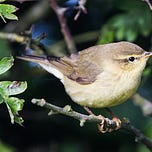




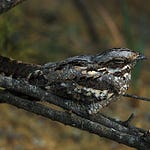
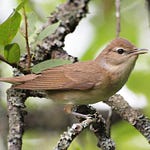

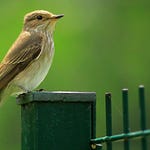


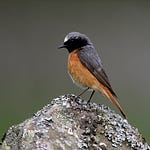
Share this post